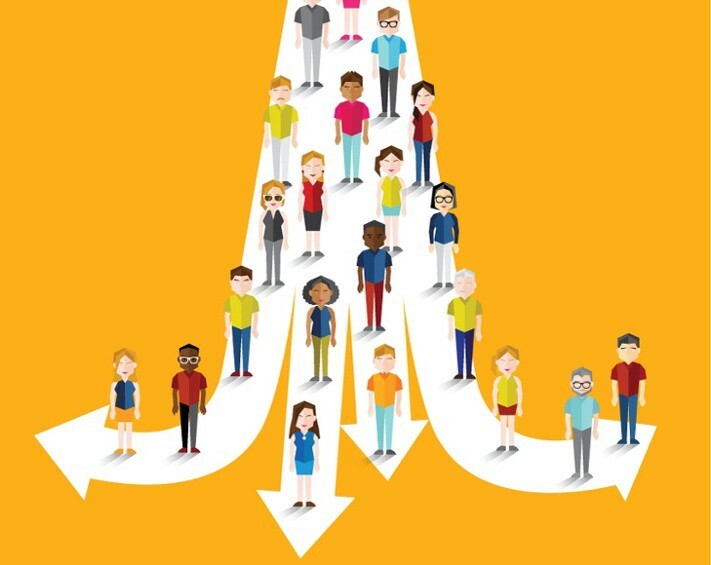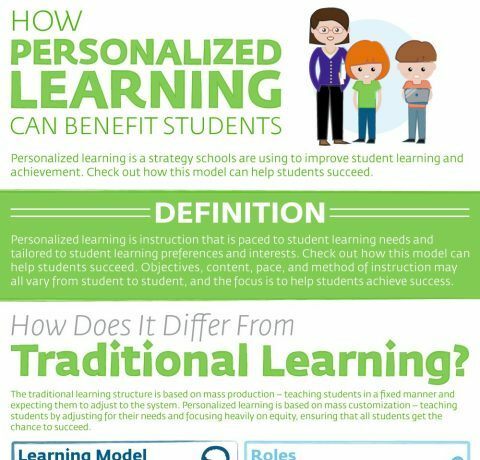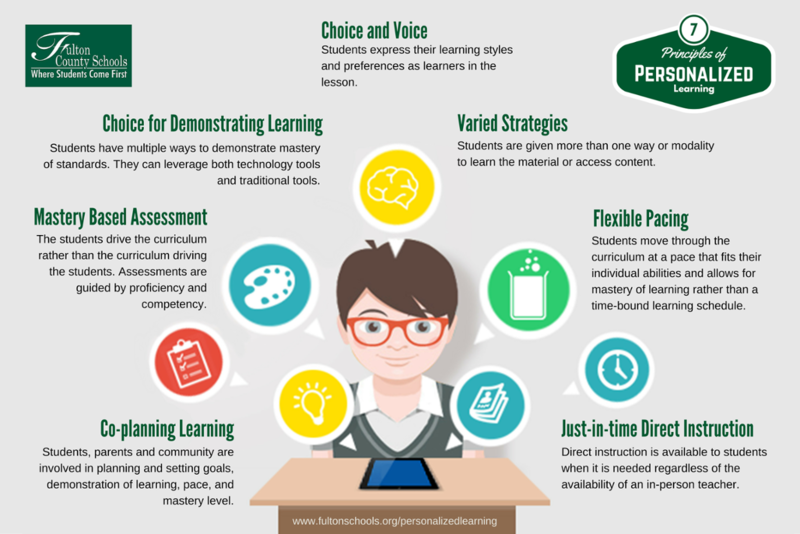e-Learning Ecologies MOOC’s Updates
Differentiated learning concept: Personalized learning
Without a doubt, personalized experiences – from web browsing to in-store shopping, and even dining out, make for better outcomes. In the realm of education, personalized learning strategies have been in vogue at a number of district and public charter schools for many years now, and there’s ample research to validate that those strategies really do work.
Personalized learning breaks from the traditional image of classroom (or lecture-based) learning – that is, a learner sitting at a desk listening to a facilitator or completing the same assignments as other learners. Varying the mode of instruction, the pace of learning, expanding the venue of learning beyond a classroom, and detaching expected outcomes from a rigid timeline are all characteristics of personalized learning.
Simply stated, personalized learning is an instruction that offers different learning options to students where the experience is tailored to the learning preferences and the specific interests of different learners.
Thus, personalized learning—where course delivery and learning activities are tailored to meet unique needs—celebrates a diversity of student learning styles and acknowledges the fluctuating situations that many are currently living through.
By providing course content to students’ individual circumstances and learning needs, the following benefits emerge:
- A student-centred approach to learning
- Improved learner engagement
- By using/altering technology to create personalized learning plans, student achievement and test scores are improved by an average of 30 per cent.
- More accurate student data of where learners have excelled and struggled
- Learning experience becomes more inclusive, personalized and inviting for all students which, in turn, will empower all learners - no matter where learning takes place.
The basic premise of differentiated learning concept is that - there is no one-size-fits-all solution to course delivery - and the concept of personalization in the classroom acknowledges that.
It enables students to complete course work at a time and pace that suits their needs. Some students will have to juggle jobs, while others will have to take care of family members. Others simply may not have reliable access to the Internet. Educational technology and online learning tools allow students to complete assignments from anywhere, making it easy to complete work at their own pace.
Ed-tech or learning management systems (LMS) strengthen feedback loops between educator and student. Students may not be able to raise their hands in class, but discussion boards, emails or informal communication channels replicate the feel of a personalized traditional classroom. Plus, students are more likely to engage with their peers, faculty and content if their learning program is tailored to their preferences - such as due dates, modality and structure for group assignments. Project-based learning is a method to ensure students have access to timely and relevant case studies, which translate into relevant class discussions.
Find the link to my write-up on Project-based learning here: https://cgscholar.com/community/community_profiles/e-learning-ecologies-mooc/community_updates/130381
REFERENCES:
- 'Personalized Learning: 6 Tips for Designing eLearning Programs' https://www.skillbuilderlms.com/personalized-learning-tips-design-elearning-programs/
- 'How to Personalize Your Online Classroom to Fuel Student Engagement' https://tophat.com/blog/personalized-learning/
- 'Personalized Learning Strategies: The Philosophy, Execution, and Pitfalls to Avoid' https://www.efrontlearning.com/blog/2017/04/personalized-learning-strategies-importance-execution-pitfalls.html




